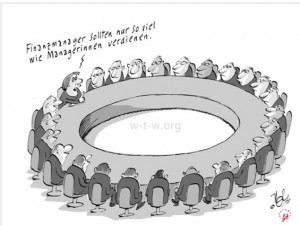Guardian US and ProPublica readers share their stories of finding out that they were paid less than their male colleagues.
Lilly Ledbetter had worked at Goodyear for years before someone slipped her a note telling her that she was making a lot less money than other men at her seniority level. Others might learn it through gossip, or through a stray pay stub.
Working women all over the US have had their own equal pay awakenings, when they realized their salaries lagged those of others who had the same qualifications. The knowledge can be a shock.
One thing is clear, however: most American women are still not getting paid as much as their male colleagues.
“Women against feminism” – a viral social media campaign that sprang up this month – isn’t purely an American phenomenon. Juliette, 45, insisted that she too was “sick of being made out to be a victim simply because I am a woman. I chose to have children and be their primary carer. I am not underpaid or a victim.”
Yet her annual pay is £5,000, or $8,473, less than that of the men in her office. Her explanation? It is not discrimination, just an effect of her having a child and needing flexible hours. “It is not a criticism of my abilities and I do not think all women are discriminated against,” she wrote.
The truth, unfortunately, is that women have been and still are paid less even if they do not take time off to have a child or need flexible hours. They earn, on average, about 77 cents for every dollar a man earns. In span of a year, they make $11,500 less than their male counterparts.
Being underpaid doesn’t automatically make you a victim. It’s an alert to stop being one. Most women who have discovered unequal pay have stood up for themselves, paving way for other women in their company. Some quit to prove that they deserve to be treated the same as their male co-workers. We all know the statistic that about 57% of men ask for their raises. For women, that number was 7%.
Yet women who do raise the subject of salary find that asking is not enough. Often times, they are told to take it or leave it. Frequently, even when given raises, their new pay still comes short of that of their male coworkers.
While that might be enough to discourage some from trying, women have to keep asking for raises and for higher pay. Why? Because men don’t hesitate to ask. Unequal pay

